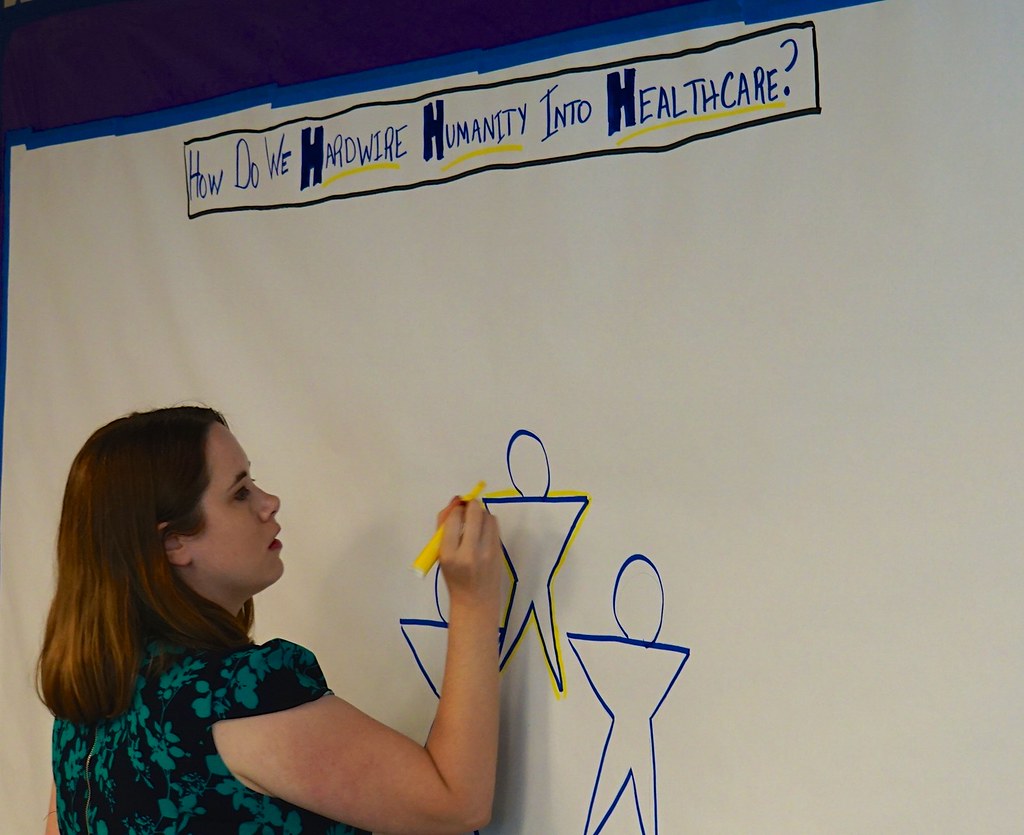
At the National Quality Forum, Washington, DC USA (View on Flickr.com)
I have experienced unexpected enjoyment and learning (beyond the usual double rainbow) through my participation in the Patient and Family Engagement Action team with the National Quality Forum (see: In the future, patients and families will help design and govern the health system. We’re from the future. | Ted Eytan, MD).
This past friday, as part of that work, I was invited by Rachel Weissburg (@RachelWeissburg) to attend (what I consider) a novel session at the National Quality Forum world headquarters in Washington, DC (@NatQualityForum) entitled “Hardwiring Humanity into Health care.”
The session was introduced to us with a great paper written by Christine Cassel and colleagues that was very just-in-time for the work I am doing today:
…the shift in language, away from respect for persons and toward respect for autonomy, suggests another possibility that concerns us, namely, that “autonomy” has effectively supplanted “persons” as the object of respect
…we have developed a conception of respect that calls for recognition of the unconditional value of patients as persons. We expect that our view of respect is controversial, and we hope that debate on the topic will occur. It is only through reflection and discussion about the meaning of respect, and about what sort of moral obligation it imposes on physicians, that we can make any sort of sincere commitment to respect patients.
I enjoy the article because the definition is not controversial to me at all, and it occurred to me that the times I experience lack of adherence to this definition are the ones that have been most (a) obvious and (b) troubling.
Patients included, shackling of shame, vulnerable populations, people who are transgender
The discussion included patient stories, told by the attendees themselves, openly and with permission to share. I love the expression “we have to shackle shame.”
“We have to put our name on it to shackle shame.” #NQFHumanity "My son is inmate No. 201202796” http://t.co/zY5MxhDtjS @tcpasquini #sharing
— Ted Eytan, MD (@tedeytan) October 3, 2014
At the same time, though, in work with vulnerable populations, including people who are transgender, there are times when we cannot reveal their identity, because to do so would place them at harm. I am including a patient who is transgender at a continuing education session this weekend, with their physician (which I have discovered is an excellent way to include patients), and this will be the situation.
I have, in my ally-ship, frequently found myself saying, “people who are transgender are human beings,” as if that is a novel concept for some. And by the way, considering people who are transgender was discussed in this meeting, and it was not brought up by me first, I am not alone.
We have to create a world where all human beings can be who they are, because they are human beings.
Wire Humanity into Your Environment – it’s easy, and contagious
An additional insight I received when I got back to the Center for Total Health, was this one, that I photographed. Shh, don’t tell, it’s backstage, in our kitchen:
Loading
If you're in health care (or any environment) look around – are the messages welcoming everywhere? I go to so many places with signs that say what I can't do instead of what I can. Change that culture.
I realize that there is something all of us can do, wherever we are, to audit our own settings, to make sure humanity is the default. What’s awesome about this example, is that the words on the top of the white board were written by me a few months ago. The drawing on the bottom, by someone else.
Humanity is contagious, too.
Thanks, Rachael, Christine, Marty (our facilitator), and the National Quality Forum for bringing the H word (human) into focus for me. I plan to propogate it enthusiastically 🙂 .
#NQFHumanity @CasselMD "every human being is worthy of respect" – start there. https://t.co/EvNFgboxMX
— Ted Eytan, MD (@tedeytan) October 3, 2014
